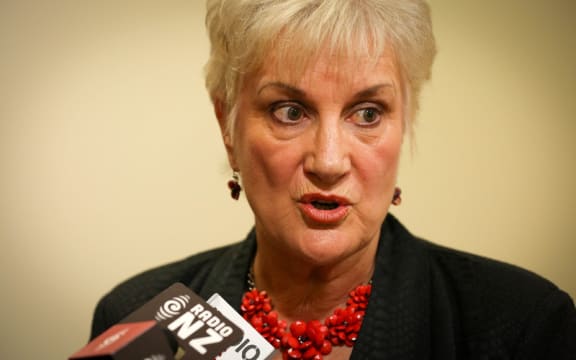The Ministry of Health has forced senior managers to sign statements swearing that they did not leak controversial proposals to radically reform the funding and make up of district health boards.

Photo: 123RF
The documents leaked to Radio New Zealand contained proposals to slash the number of democratically elected board members and make DHBs compete for funding.
The Ministry of Health has confirmed that the small number of staff working on the two documents that were leaked were asked to put in writing that they had acted appropriately in keeping the documents secure while working on them, and the ministry said they all did so.
Radio New Zealand understands that the work on the health strategy and changes to DHBs has been taken out of senior managers' hands and given to external consultants from overseas.

Labour Deputy Leader, Annette King. Photo: RNZ / Alexander Robertson
Labour Party health spokesperson Annette King said never in her six years as a minister of the portfolio had she sought, or asked officials to seek such assurances.
She said it showed there was a problem within the Ministry of Health itself and within the senior management.
"There is definitely those working there very unhappy with the style of leadership, with what they call a bullying culture and with the direction of travel of the Ministry of Health and I think having to ask your staff if they have leaked documents shows a real lack of trust."
She said the leaks had been on big issues within the health system, largely to do with funding, which was of public interest.
Association of Salaried Medical Specialists executive director Ian Powell said he had never before heard of this practice, which he described as an over the top response from the ministry.
He said while he did not condone leaking, the process around the reviews was sloppy, where controversial recommendations were given to a select number of people but without the rationale to support what was being proposed, which raised alarm bells and suspicion.
"The unnecessary secrecy over the exercise obviously compelled some people to believe that this was a done deal and that the wider public had a right to know, so my assumption of the leaking was that in fact it was a form of whistleblowing because there appeared to be no other way of actually addressing concerns."
Mr Powell said what he took from this was that the ministry did not have a high trust culture.
"Our health system is disadvantaged when the central bureaucracy for its leadership overall is behaving in a way that appears to outsiders to be dysfunctional and certainly appears to be disharmonious internally. It fails to give confidence in those working at the clinical frontline and confidence in the leadership of the system."
Public Service Association national secretary Richard Wagstaff said the government and its agencies appeared to be increasingly sensitive about the leaking of information.
The Ministry of Health declined to be interviewed but said signing confidentiality forms was done on a case by case basis and it held no figures on how often staff were asked to do this.




